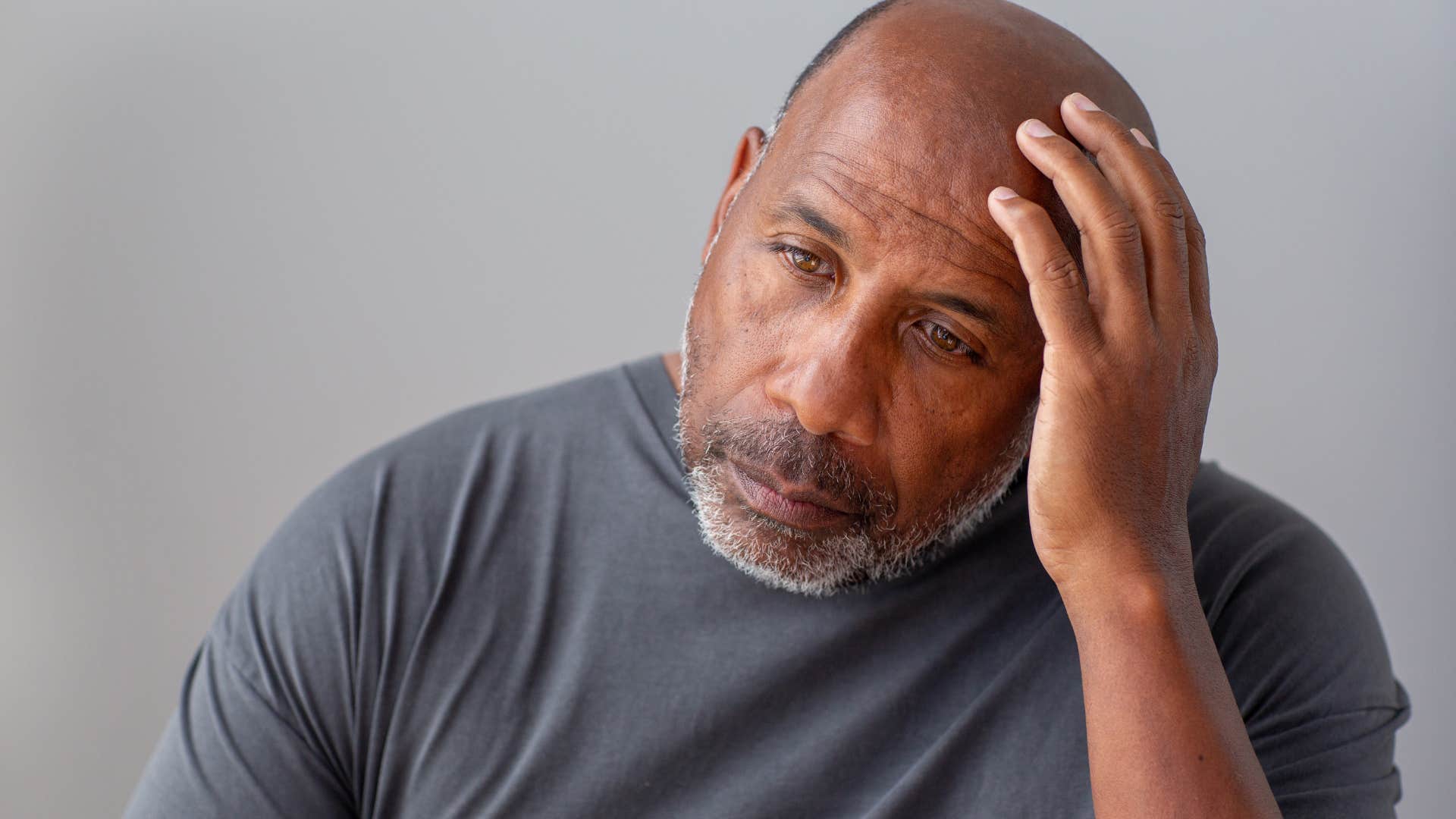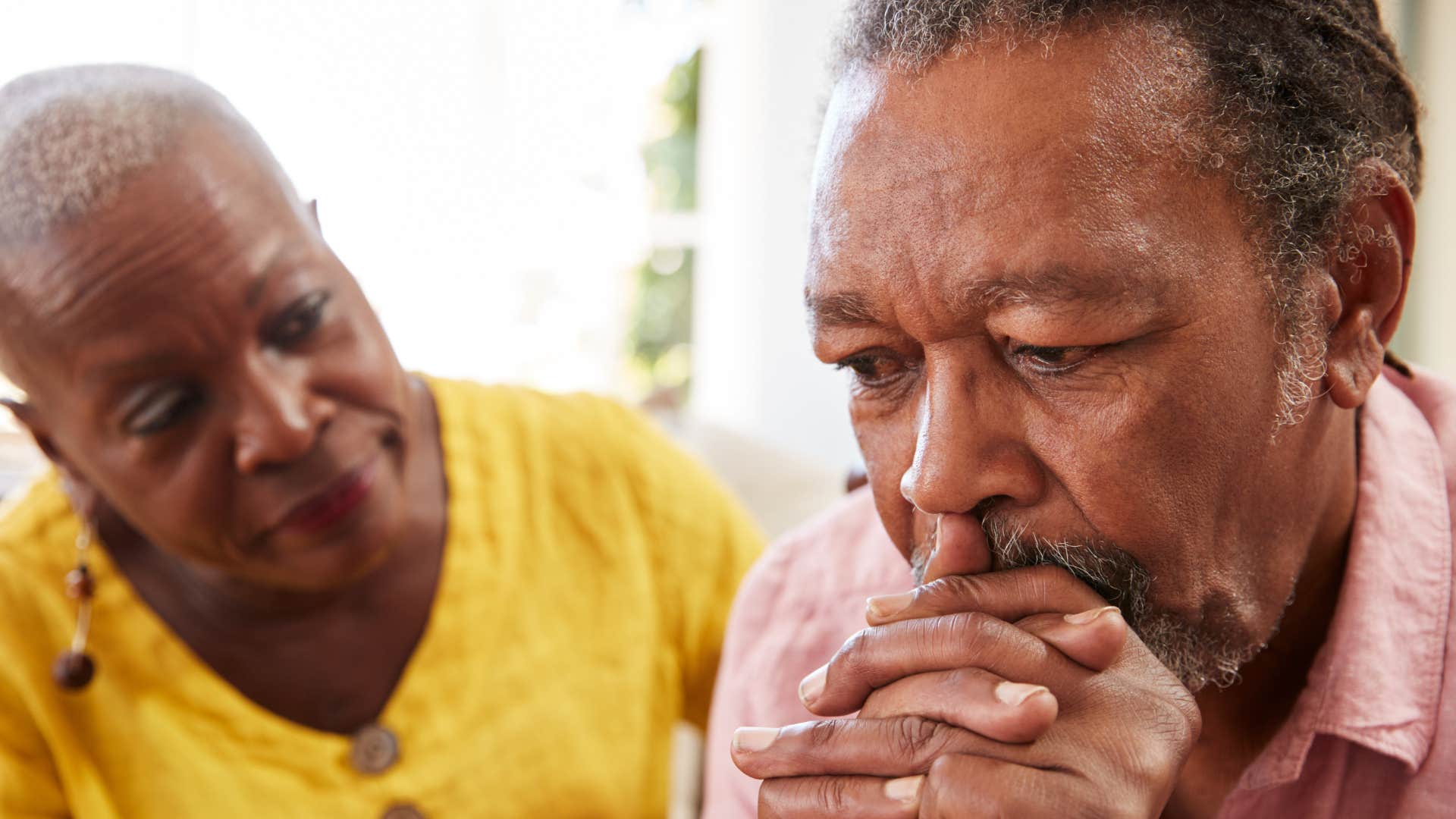11 Reasons People Ghost Their Friends & Avoid Responding To People They Care About
They're stuck in a cycle of loneliness and emotional fatigue.
 PeopleImages | Shutterstock
PeopleImages | Shutterstock Friendships keep us stable and add a lot of meaning to our lives as adults, yet they’re largely overlooked in the grand scheme of relationship well-being and work. We sacrifice time with friends for the sake of our partners or cancel plans when work gets too intense, even if our friendships are one of the only things serving as a buffer against struggles with burnout, anxiety, or chronic stress.
Of course, many of the reasons people ghost their friends and avoid responding to people they care about stem from these mental health struggles. They fear being a burden, are actively coping with burnout, or feel so overwhelmed with their daily lives that they overlook the importance of making time for platonic support and friendships.
Here are 11 reasons people ghost their friends and avoid responding to people they care about
1. They’re depressed
 baranq | Shutterstock
baranq | Shutterstock
A study from the Journal of Affective Disorders suggests that social isolation and depression are inherently linked. Not only does isolation spark depressive symptoms, but struggling with depression can also urge people to isolate themselves from others out of fears of being a burden or struggles with self-esteem.
That’s why depression is one of the reasons people ghost their friends and avoid responding to people they care about — they’re already overloaded with mental stimuli and overwhelmingly complex internal emotions.
2. They’re burnt out from work
 fizkes | Shutterstock
fizkes | Shutterstock
Many people struggling to manage an overloaded schedule and the stress of burnout may isolate themselves from friends and relationships to cope, even on a subconscious level. They’re emotionally drained and exhausted from dealing with all of their daily stressors, so even small things like responding to a text message feel impossible.
Of course, the more isolated a person is, without social support to cope and manage their stress, the more exaggerated their toxic burnout symptoms become, according to a study from Academic Medicine. So, it’s a cycle that often urges them to further isolate themselves and ghost loved ones.
3. They’re in a toxic relationship
 fizkes | Shutterstock
fizkes | Shutterstock
In toxic relationships, isolation isn’t just a side effect, it’s also a controlling mechanism. Toxic people will actively try to isolate their partners from good friends and loved ones to wield more control over their lives and decisions.
That’s why this is one of the reasons people ghost their friends and avoid responding to people they care about — they’re stuck in a cycle of control, power, and isolation.
4. They feel chronically misunderstood
 pixelheadphoto digitalskillet | Shutterstock
pixelheadphoto digitalskillet | Shutterstock
According to a study from the Journal of Social and Personal Relationships, feeling chronically misunderstood affects more than relationship satisfaction and self-esteem — it also sparks more daily stress and tends to lower motivation. So, not only do people who feel misunderstood in their friend groups tend to feel less motivation to reach out to their friends, but they also avoid interactions to cope with their emotional distress.
Our friendships are incredibly important for boosting our well-being, but if they’re regularly adding stress and taking away from our sense of security, it’s much harder to make time for conversations and quality time.
5. They’re ashamed
 PeopleImages | Shutterstock
PeopleImages | Shutterstock
Shame is an incredibly powerful emotion that can drastically impact self-esteem, relationships, and psychological well-being if it’s not addressed and managed. That’s why it’s often one of the reasons people ghost their friends and avoid responding to people they care about — they’re ashamed and grappling with internal fears that feel far more convincing than they look on the outside.
Especially as they continue to avoid addressing their shame, it only spirals into a more intense experience, bringing loneliness and isolation along with it.
6. They’re hiding something
 Impact Photography | Shutterstock
Impact Photography | Shutterstock
While avoiding someone as a “protective buffer” against distress is sometimes done for the protection of others, according to a study from Emotion, it’s also often rooted in personally avoidant tendencies. Rather than being honest and taking accountability themselves, they retreat from conversations and interactions, protecting their own comfort and ego.
So, if a friend is ghosting you or avoiding conversations about their own mistakes, actions, or language, there’s a chance they’re hiding something — or, more specifically, hiding from something.
7. They’ve outgrown their social circle
 fast-stock | Shutterstock
fast-stock | Shutterstock
Especially early in life, there are several reasons why a friend group may drift apart or a friendship may subtly shift, but communication is key. Yes, it may be easier and more convenient to ghost a friend who’s overstepping boundaries or making you feel poorly, but it’s more rewarding and internally fulfilling to have a conversation first.
Of course, if someone is actively hurting you or sabotaging your well-being, this kind of communication isn’t always necessary. However, some people simply avoid these conversations and ghost to appease their own internal anxieties and insecurities. Rather than face their own discomfort, they suppress it and avoid it until it’s not possible to do any more.
8. They fear being a burden
 Lopolo | Shutterstock
Lopolo | Shutterstock
Many people who struggle with anxiety worry about being a burden to their friends and family, so they over-explain, over-apologize, and avoid seeking help when they need it most. Ironically, it’s actually these behaviors that burden the people in their social circles, as they’re constantly bombarded with a person’s insecurity and fear.
So, even if it seems antithetical to nurturing deep, positive relationships, this is one reason people ghost their friends and avoid responding to people they care about.
9. They’re afraid of true vulnerability
 Monkey Business Images | Shutterstock
Monkey Business Images | Shutterstock
Avoiding vulnerability and closeness isn’t always a sign that someone doesn’t care, according to clinical psychologist Hal Shorey. Still, it can mean they’re holding onto unresolved childhood trauma, suffering from an avoidant attachment issue, or feeling incredibly insecure.
To feel a misguided sense of control over their own lives and relationships, they hold their emotional walls up strongly — dodging vulnerability and avoiding true closeness for a sense of power. However, that only amplifies the loneliness they’re probably already struggling with and is also often one of the reasons people ghost their friends and avoid responding to people they care about.
10. They don’t know how to heal
 PeopleImages | Shutterstock
PeopleImages | Shutterstock
People grappling with fear and experiencing bereavement often feel lonelier, according to a study from Current Opinion in Psychology. Not only does this loneliness spark poor mental health, but it also often crafts a cycle of isolation and sadness that struggling people already fall into.
They’re trying to cope with all of these new struggles and their added depression and loneliness, often unsure of where to start. So, it’s not surprising that this complex healing process is one of the reasons people ghost their friends and avoid responding to people they care about.
They feel like they’re doing something right by isolating to contain their complex emotions, but it only pushes them farther away from the social support and love they need to heal.
11. They’re stuck in survival mode
 Monkey Business Images | Shutterstock
Monkey Business Images | Shutterstock
Whether it’s lingering childhood trauma, a trigger from a toxic relationship, or stress in their daily lives, someone who’s stuck in “survival mode” may struggle to respond to their text messages or keep up with loved ones.
Some people flee, harboring avoidant tendencies from the start. Others fight and defend themselves in the face of appreciation. The last handful of individuals freeze.
Like psychologist Julian Ford explains, when the brain’s alarm system is on high alert, stress can feel “unstoppable” and chaos can become the new norm. However, resetting this alarm system and shifting the brain to grow and engage fully in their lives can be the key to reconnecting.
So, if someone in your life has ghosted you or stopped responding in loving group chats, they may be stuck in a state of fear or stress that’s sabotaging their ability to do even the simplest tasks throughout their day.
Zayda Slabbekoorn is a senior editorial strategist with a bachelor’s degree in social relations & policy and gender studies who focuses on psychology, relationships, self-help, and human interest stories.

